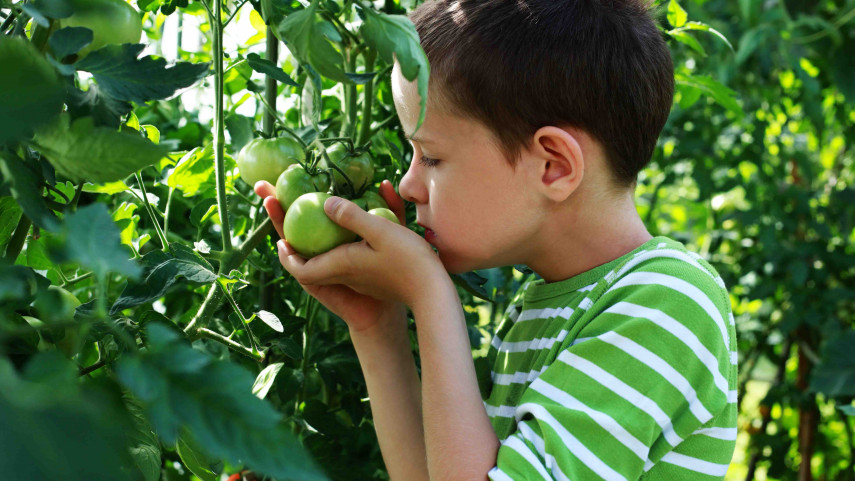
Local sustainability projects benefit from new funding

Share this story
A school climate action campus and a locally developed app that allows people to rent, lend or borrow household items are among those to benefit from the first round of Sustainability Fund grants.
The Sustainability Fund was set up by Christchurch City Council in August 2020 to support the Council’s climate change objectives and targets.
During the first funding round, the Sustainability and Community Resilience Committee approved $247,930 in funding for 19 proposals from community groups, schools, social enterprises and businesses that are working to reduce greenhouse gas emissions, combat climate change and build resilience.
“A large number of the funding applications we received were focused on education, which indicates the community desire to raise awareness and grow capacity for climate action.
“The committee was very keen to support these climate-focused projects because we are going to need everyone in our city to make behaviour changes if we are to achieve our goal of halving greenhouse gas emissions by 2030 and reaching net zero emissions by 2045,’’ says Councillor Sara Templeton, who chairs the Sustainability and Community Resilience Committee.
“We are granting Ao Tawhiti Discovery School a $40,000 grant to help them achieve their goal of setting up New Zealand’s first climate campus. They want to equip students with practical action-oriented learning on climate change and provide a one-stop shop for education on sustainability that other schools can tap into.
“Ao Tawhiti Discovery School want to equip students with practical action-oriented learning on climate change and provide a one-stop shop for education on sustainability that other schools can tap into.
“It is a great initiative that will be an asset to the city and benefit schools that might otherwise struggle to deliver comprehensive sustainability education,’’ Cr Templeton says.
“We also approved $3500 in funding for a Christchurch Climate Challenge event that aims to empower youth with the skills, tools, mentorship and connections needed to create practical action on climate change.’’
Another project to receive funding is Young Propagating Gardens Sustainability Hub, which is being set up by New Brighton Community Gardens. This project will provide hands-on learning for at least 70 students from seven local schools about food growing and preparing healthy food.
“The Committee also approved a grant of $5000 to support a local business that has developed the Mutu sharing app which allows people to rent, lend or borrow household items instead of purchasing them.
“This initiative supports our goal of having a resource-efficient, circular, sharing economy and has the potentially to reduce waste while at the same time building more connected, resilient communities,’’ Cr Templeton says.
Grants were also given to:
- Te Pūtahi Christchurch Transitional Architecture Trust ($30,000) so it can deliver a series of community education events on climate change.
- Roimata Commons Trust ($20,000 for its Toha Kai food sharing service which will reduce food waste and support food security for families in Woolston.
- Food Bank Aotearoa New Zealand ($20,000) for its Waste Not, Want Not service that collects surplus food from throughout the city and donates it to foodbanks.
- Summit Road Society Incorporated ($20,000) so it can plant 87,000 trees and shrubs over 33 hectares of the Upper Avoca Valley on the Port Hills.
- Avon-Heathcote Estuary Trust ($20,000) for its mobile water education facility that will help schools and community groups throughout the city learn about waterways.
- RAD Bikes Charitable Trust ($16,000) so it can expand its activities that repair and share bikes with low income families and teach people how to maintain their own bikes.
- Flourish Kia Puāwai Social Enterprise Limited ($15,000) for its Flourish Kia Puāwai project that aims to engage the community on climate change.
- Tock Earth Limited ($10,000) so it can test its early childhood and primary school education programme for one year in Christchurch.
- University of Canterbury ($10,000) for its Sustainable Development Goals Summit Series.
- A Rocha Aotearoa New Zealand ($10,000) for its Zero Waste Churches programme.
- EOS Ecology Limited ($10,000) for Operation River Quest, which will help clean-up and teach school students about waterways in Christchurch.
- Diamond Harbour Community Association on behalf of Friends of Morgan’s and Sam’s Gullies ($3000) so it can restore native plants along walkways and gullies on Council land at Diamond Harbour.
- Little River Campground Limited ($2625) so it can protect an area of native forest and wetland in the Okuti Valley.
- The Living Streams Community Nursery Trust ($1500) so it can grow the capacity of its community-run nursery in Little River.
- Christchurch Boys’ High School ($900) for a school composting project that will see students involved in managing waste and growing fruit and vegetables.
- Little River Playcentre ($405) to install energy efficient lighting.
Applications can now be made for the next funding round, which closes in April 2021. In the next round, the Council is looking to support innovative projects that help reduce emissions from the district. Applications can be made online at ccc.govt.nz/sustainability-fund.
